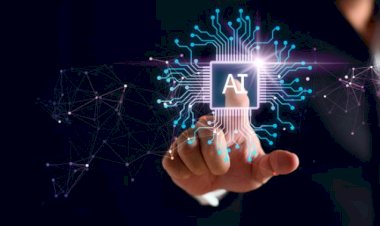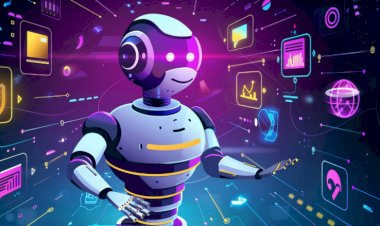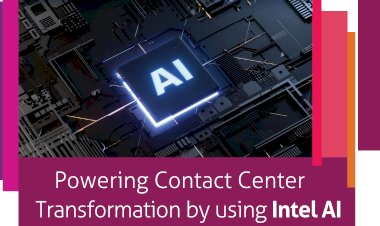Revolutionizing Software Development The Role of AI in Coding

Artificial Intelligence (AI) has been transforming various industries, and software development is no exception. The integration of AI into coding processes is revolutionizing how developers approach, execute, and optimize their work. This article delves into the impact of AI on coding, exploring its benefits, applications, and future potential.
The Evolution of AI in Software Development
AI's role in software development has evolved rapidly over the past few years. Initially, AI tools were used to assist with repetitive tasks such as code completion and debugging. However, recent advancements have significantly expanded AI's capabilities, allowing it to perform complex tasks that were once the sole domain of human developers.
Benefits of AI in Coding
- Enhanced Productivity: AI-powered tools can automate repetitive and mundane tasks, freeing up developers to focus on more creative and strategic aspects of coding. This leads to faster development cycles and increased productivity.
- Improved Code Quality: AI can analyze vast amounts of code to identify patterns and detect errors or vulnerabilities that might be overlooked by human eyes. This results in cleaner, more secure, and more efficient code.
- Intelligent Code Completion: AI-driven code completion tools, such as GitHub Copilot, provide real-time suggestions as developers type. These suggestions are based on context, previous code, and best practices, enabling developers to write code more quickly and accurately.
- Predictive Analytics: AI can predict potential issues in code by analyzing historical data and patterns. This allows developers to address problems proactively, reducing the likelihood of bugs and performance issues.
- Automated Testing: AI can generate and run test cases automatically, ensuring comprehensive testing coverage. This reduces the time and effort required for manual testing, leading to faster and more reliable software releases.
Applications of AI in Coding
- Code Generation: AI algorithms can generate code snippets or entire modules based on high-level descriptions or user inputs. This is particularly useful for routine tasks, boilerplate code, and standard functionalities.
- Bug Detection and Fixing: AI-powered tools can scan codebases to identify bugs and suggest fixes. Some advanced tools can even apply fixes automatically, significantly reducing the time spent on debugging.
- Natural Language Processing (NLP): NLP techniques enable AI to understand and generate human-like code comments and documentation. This enhances code readability and maintainability, making it easier for developers to collaborate and understand each other's work.
- Refactoring and Optimization: AI can analyze code to suggest or perform refactoring and optimization, improving code performance and maintainability. This ensures that the codebase remains efficient and scalable as it evolves.
- Customizable AI Models: Developers can train AI models to suit specific project requirements, industry standards, or coding styles. This customization ensures that AI tools provide relevant and context-specific assistance.
The Future of AI in Coding
The future of AI in coding looks promising, with ongoing advancements poised to further enhance its capabilities. Here are some potential developments:
- Increased Collaboration: AI tools will facilitate better collaboration among developers by providing real-time insights, code reviews, and suggestions. This will streamline teamwork and improve overall productivity.
- AI-Driven Development Environments: Integrated Development Environments (IDEs) will become more intelligent, leveraging AI to offer personalized coding experiences, context-aware assistance, and seamless integration with other tools and platforms.
- Adaptive Learning: AI models will continuously learn and adapt to individual developers' coding styles, preferences, and habits. This will result in more tailored and effective assistance, enhancing the overall coding experience.
- Ethical AI in Coding: As AI becomes more integral to software development, there will be a greater focus on ethical considerations, such as bias mitigation, transparency, and accountability in AI-generated code.
Conclusion
AI is transforming the landscape of software development, offering numerous benefits that enhance productivity, code quality, and efficiency. As AI continues to evolve, it will play an increasingly significant role in coding, shaping the future of how software is developed, tested, and maintained. Embracing AI-driven tools and methodologies will be crucial for developers and organizations seeking to stay competitive and innovative in the rapidly changing tech industry.





















